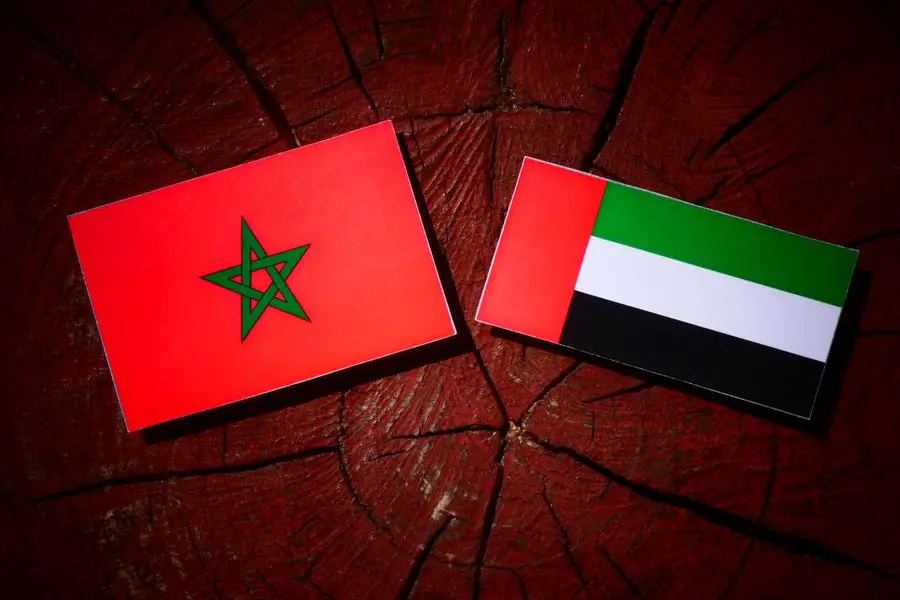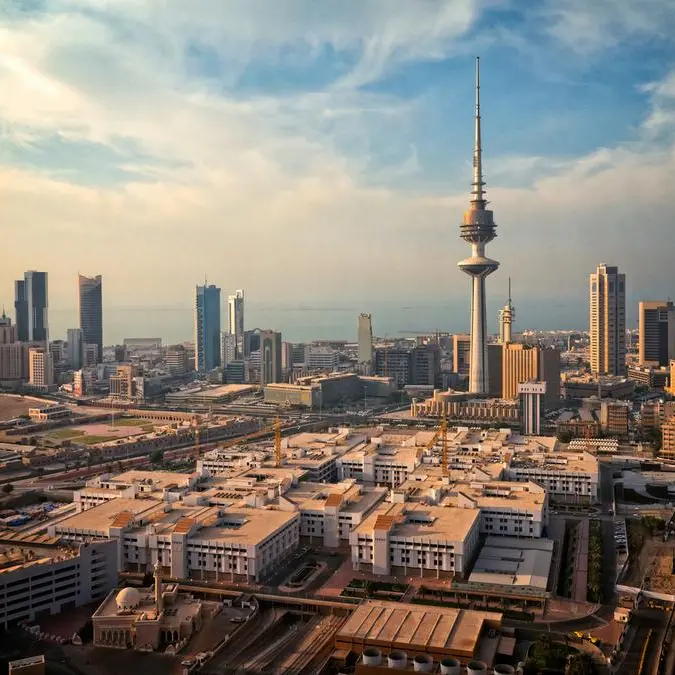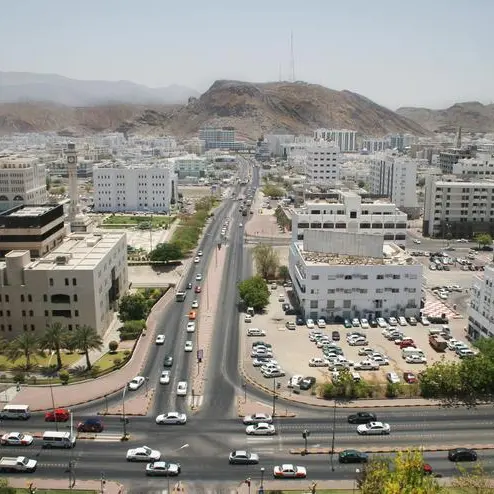PHOTO
UAE and Morocco have set a goal to double the volume of trade and investment exchanges between the two countries over the next seven years.
The two countries further agreed to strengthen cooperation in priority sectors in their economic agendas. These include trade, investment, finance, banking, food security, industry, innovation, technology, energy, renewable energy, logistics and infrastructure. In addition, the two countries agreed to promote the exchange of experiences and knowledge in the fields of tourism, culture, education and health.
This was agreed at the first ever UAE-Morocco Joint Economic Committee (JEC) session that took place recently in Rabat, in implementation of the agreement on trade, economic and technical cooperation between the two countries. The session was chaired by Abdullah bin Touq Al Marri, Minister of Economy and Nadia Fattah Al Alawi, Moroccan Minister of Economy and Finance.
Common interest
The JEC session was attended by a number of federal and local government officials and leading private sector companies operating in various sectors of common interest from both sides.
The UAE delegation that attended the session included representatives of the Ministry of Foreign Affairs and International Cooperation, the Department of Economy and Tourism in Dubai, Abu Dhabi Fund for Development, Federation of Chambers of Commerce and Industry, Etihad Rail, Emirates Airlines, Abu Dhabi Future Energy Company (Masdar), DP World, Abu Dhabi Ports Group, Al Ain Farms for Animal Production, Sharjah Chamber of Industry and Commerce, Emirates Council for Investors Abroad, Sharaf Group, Al Nowais Investment Company, EMEA Power Company, among others.
Bin Touq stated that the UAE and Morocco share historical relations and a distinguished partnership characterised by mutual understanding and cooperation in all various strategic fields. He pointed out that the convening of the first UAE-Morocco JEC session reflects the shared desire of both leaderships to strengthen and elevate existing economic and trade relations to new heights.
New milestone
He added: "The JEC is a new milestone in the development of economic and trade ties between the two countries, which will enable us to capitalise on promising investment opportunities available in both countries’ markets. It will help bring the UAE’s and Morocco’s private sectors closer to each other and promote dialogue between them, which will lead to growth in trade and investment exchanges.”
He said: “The non-oil trade and investment exchanges between the two countries continue to grow. The UAE is the largest Arab investor in Morocco today and the second largest globally. Our investments in Morocco exceeded AED50 billion ($14 billion) by the end of 2021, accounting for 21% of total FDI in Moroccan markets. At the same time, Morocco’s investments in the UAE amounted to AED289.9 million ($79 million) by the end of 2020.”
“The UAE’s investments in Morocco span services, cars, industry, communications, agriculture, health, tourism, real estate, energy, pharmaceuticals, and other major development sectors. Moroccan investments in the UAE are also spread across several important economic sectors including real estate, insurance, and professional, and technical activities.”
The minister added: “The UAE is the second largest Arab trading partner of Morocco as of 2021, as the non-oil foreign trade between the two countries amounted to AED3.6 billion ($991.2 million) in 2022, up 16% from 2021 and 67.3% from 2020."
Economic policies
Bin Touq highlighted several economic policies adopted by the UAE to future-proof its investment environment and enhance its competitiveness. These include amendments made to the country’s Commercial Companies Law to ensure a flexible business environment for investors. These amendments granted 100% foreign ownership for companies and investors in all economic sectors and in all legal forms.
Also noteworthy are the issuance of new laws for commercial transactions, commercial agencies, cooperatives, and family companies, and the launch of the golden visa system for many categories with a residency period ranging from 5-10 years. These developments are now contributing to attracting businesses, innovators, and talent to the country from around the world, providing them with an ideal work environment for success and growth. They continue to take advantage of the flexibility to do business in various emirates of the country, including free zones, and the attractive incentives and advanced infrastructure facilities they offer.
Al Alawi underlined the prospering bilateral relations between the two countries, thanks to the shared commitment of both governments to continually advance them. She also praised the contributions of the UAE government and the Abu Dhabi Fund for Development to supporting development projects in several key sectors in Morocco.
Furthermore, the Moroccan minister apprised the UAE delegation of the most significant economic reforms undertaken by the Moroccan government to improve the country’s business climate.
Enhancing joint efforts
She confirmed Morocco's readiness to enhance joint efforts with the UAE to ensure fruitful economic cooperation in various fields of common interest. She also invited UAE investors to take advantage of promising investment opportunities offered by the Moroccan markets and explore partnerships with the Moroccan private sector in priority sectors.
Moreover, the two countries agreed to form joint work teams to enhance communication between the UAE and Moroccan business communities by organising workshops, forums, and meetings. Both sides also underlined the importance of enhancing cooperation through the Morocco-UAE Business Council in promising economic and trade fields.
Trade exchanges to intensify
The JEC session explored the means to enhance trade exchanges and organise joint workshops and events to facilitate export and import procedures for exporters and importers in both markets. A joint team will be formed to develop initiatives aimed at doubling non-oil foreign trade between the two countries over the next seven years.
New mechanisms to boost FDI exchanges
The UAE and Morocco discussed new mechanisms and strategies that contribute to increasing FDI flows between the two countries in sectors of common interest. These will ensure more opportunities for the private sector.
Support for SMEs
Also discussed were the programmes and facilities that need to be developed in the fields of export and investment to enable SMEs to easily access both markets. This will help increase their investments and support their exports to new markets, thus increasing the contribution of the SMEs sector to the GDP of both nations.
Anti-money laundering
The UAE and Morocco expressed their shared desire to enhance cooperation in the field of anti-money laundering\combating the financing of terrorism and illegal organisations; monitoring of the DNFBP sector; and applications of real beneficiary data for companies. They agreed that this will support FDI flows between the two countries and help ensure the integrity of the financial system and compliance in accordance with international best practices.
Financing of development projects in Morocco
The two sides hailed existing cooperation in the finance sector and the implementation of vital development projects. The UAE expressed its desire to explore more opportunities to finance development and strategic projects in the Kingdom of Morocco.
Insurance services
The JEC session also discussed opportunities in the areas of joint insurance services for the export of goods, investments, and services, in a way that supports insured traders in both markets. The two countries further agreed to promote exchange of experiences and best practices on a shared basis in commercial underwriting, risk management, claims and refunds.
Copyright 2022 Al Hilal Publishing and Marketing Group Provided by SyndiGate Media Inc. (Syndigate.info).




















